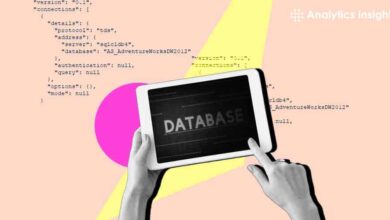The best business intelligence (BI) tools to consider in 2024 — Retail Technology Innovation Hub

When it comes to the field of business intelligence, or BI, it is essential to know and be able to work effectively with specialised tools.
Conceptually, business analytics are the functions, strategies, and tools that companies use to collect, process, and analyse data.
By collaborating with a business intelligence software development company, you gain valuable custom tools in your arsenal that allow you to identify and implement new business opportunities, thereby increasing your return on investment based on the data collected.
Let’s take a closer look at what BI tools are, which ones are the most popular, and what competitive advantages you can enjoy.
BI tools are software that collects, processes and analyses large volumes of data (structured and unstructured). This could be data from internal and external systems: documents, images, videos, emails, messages, materials from social networks and much more.
The value of such tools is that they display data in user-friendly formats. You can work with them in the form of reports, dashboards, graphs, charts, etc.
BI tools can perform a variety of functions including data mining, visualisation, performance management, analysis, reporting, and predictive analytics. The data collected can then be used to make informed decisions based on forecasts, trends and KPIs.
The most popular business intelligence tools
Today you can find many BI tools. We have selected some that are most frequently mentioned and used by many companies.
Dundas BI
Dundas BI is a common browser-based business intelligence tool that has similar features to Tableau.
Dundas BI has drag-and-drop functionality that allows users to analyze data themselves. The tool is popular due to its simplicity and flexibility.
Since its release in 1992 as a data visualisation tool, Dundas has grown into a comprehensive analytics platform that can compete with many modern business intelligence tools.
QlikSense
QlikSense is another business intelligence tool that focuses on self-service. It provides ample opportunities to use analytics. From managed apps and dashboards to custom and embedded analytics.
QlikSense offers a user-friendly interface optimized for touch screens, advanced artificial intelligence and a cloud platform.
Among the most valuable features is Search & Conversational Analytics, which helps improve data literacy among people new to using business intelligence tools by allowing them to ask questions and gain insight.
Sisense
Sisense is a user-friendly business intelligence tool focused on simplification and optimization. It gives you an opportunity to import data from various sources, including Google Analytics and Salesforce.
Sisense allows you to process data faster. Key features include the ability to perform white label analysis, which means companies can fully customise the service to suit their needs. Like other apps, it has a drag-and-drop feature.
As a bonus, this tool allows you to share reports and dashboards with team members and other users.
Tableau
Tableau has become popular due to its data visualisation capabilities. However, this tool does more than just create easy-to-understand diagrams. It also offers real-time visual analytics and a drag-and-drop interface to quickly identify data trends.
Tableau supports sources such as Microsoft Excel, Box, PDF and Google Analytics. In addition, its functionality extends to the ability to connect to most databases, which makes Tableau an attractive BI tool.
Microsoft Power BI
Microsoft Power BI is perhaps one of the most famous business intelligence tools developed by Microsoft.
The tool is a downloadable software that allows users to perform analysis both in the cloud and on a server. Reports and dashboards can be created in minutes using interactive features, making Microsoft Power BI easily synchronised with different resources such as Facebook and Oracle.
It has built-in AI capabilities, Excel integration, and data connectors. In addition, Microsoft Power provides end-to-end data encryption and real-time access control.
Benefits of business intelligence
Business intelligence tools help companies make informed decisions and provide enhanced flexibility.
Automation
Instead of manually entering data into Excel spreadsheets or switching between different software, BI tools are automated. Therefore, if you need a report for a specific period, the tool will generate it automatically.
You can also incorporate this information into a presentation by creating an interactive visualisation and importing the necessary graphs and charts.
Cost Reduction
BI tools can perform a wide range of tasks, from analysing customer behaviour to forecasting sales and monitoring processes in real time. Thus, you get more efficient and precise analysis, planning and reporting, which naturally allows you to reduce costs and increase income.
Forecasting
Access to large sets of data allows you to make informed decisions.
Predictive analytics and forecasting make it possible to obtain valuable information based on statistical data. In addition, intelligent tools can automatically detect anomalies and respond to failures as they occur.
Self-Service
Using business analytics tools, even an employee without a technical background can access and analyze the necessary data. So whether you need a sales report or data visualisation, it can all be done quickly and easily without the need to turn to IT specialists in many cases.
Centralisation
With business intelligence tools, all data is in one place. Companies can collect data from numerous databases, portals, CRM, enterprise resource planning systems, etc., and then combine all this data into specific types of information depending on tasks and goals.
Final thoughts
Data usage is growing rapidly and shows no signs of slowing down. Businesses today rely heavily on information from a variety of data sources to understand consumers, markets, and the industry.
Additionally, the use of artificial intelligence and augmentation tools allows companies to evaluate their performance and make necessary changes to improve efficiency, productivity, and savings.
Companies can use business intelligence to make informed decisions for sustainable growth since data analytics become easier and more accessible as artificial intelligence applications and agile integration rapidly evolve. Learn more about artificial intelligence PoC at DeepInspire.



